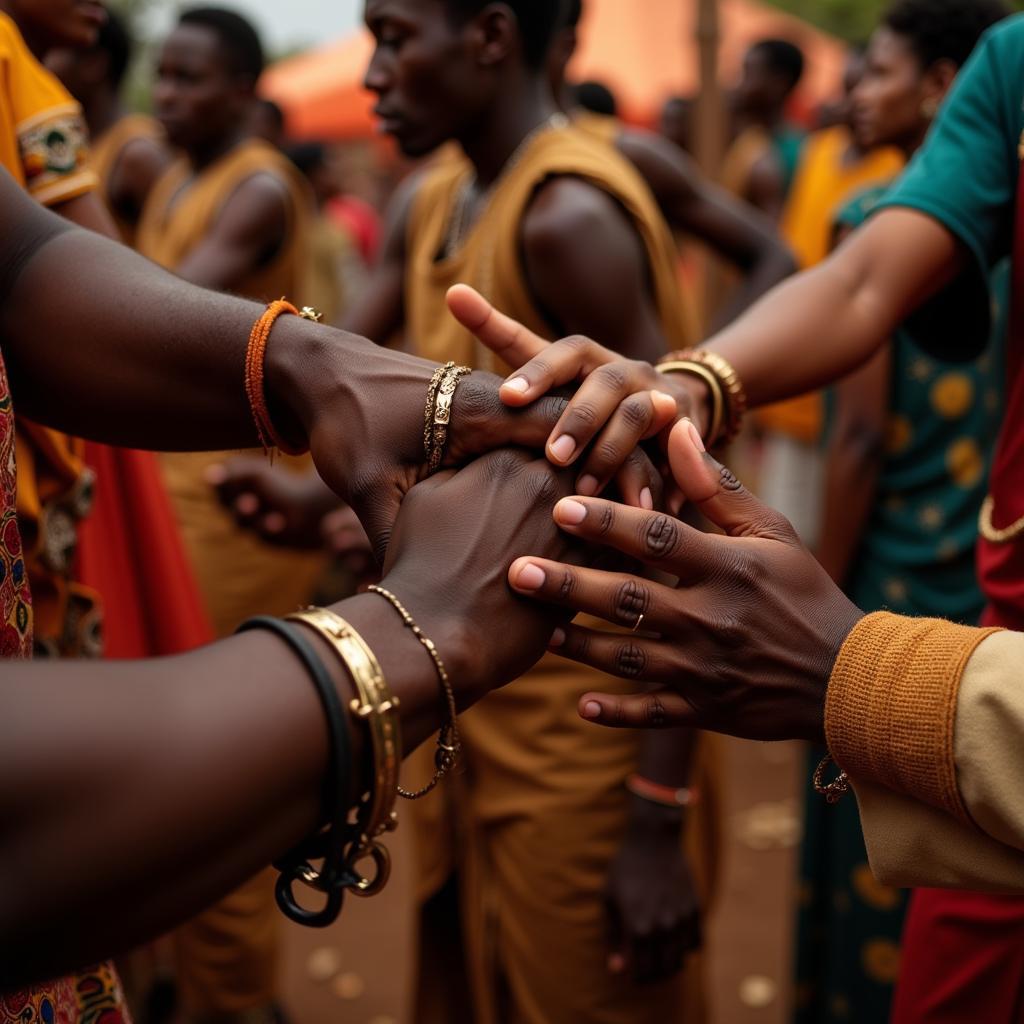Unveiling the Rich Tapestry of African Culture: A Journey Beyond the Stereotypes
The vast and diverse continent of Africa is often misrepresented in the media, leading to misconceptions and a limited understanding of its rich cultural heritage. While it’s true that Africa faces numerous challenges, it’s equally important to acknowledge its vibrant traditions, artistic expressions, and historical achievements. This article delves into the captivating world of African culture, unveiling its hidden treasures and offering insights into the lives and customs of its people.
Beyond the Safari: Exploring the Depth of African Culture
Africa is not just about wildlife safaris and sprawling deserts. It’s a continent brimming with diverse ethnic groups, each with its unique language, customs, and traditions. From the ancient pyramids of Egypt to the vibrant markets of Morocco, from the intricate wood carvings of the Congo to the rhythmic beats of South African music, Africa’s cultural landscape is a captivating tapestry woven with threads of history, art, music, and spirituality.
The Power of Storytelling: Preserving African Heritage
Storytelling is a cornerstone of African culture, passed down through generations and forming a vital part of its oral tradition. These stories not only entertain but also teach valuable lessons about history, morality, and social values. Through folktales, myths, and legends, African people have preserved their identity and shared their wisdom with future generations.
“The power of storytelling in Africa is immense,” says Professor Abena Busia, a renowned anthropologist specializing in African folklore. “It’s not just about entertainment, but about connecting with our past, understanding our present, and envisioning our future.”
Art as a Reflection of Life: Expressing the African Soul
African art is renowned for its vibrant colors, intricate details, and symbolic significance. Whether it’s the magnificent masks used in ceremonial dances, the intricate beadwork adorning traditional attire, or the powerful sculptures that embody the spirits of ancestors, African art is a powerful expression of its people’s beliefs, values, and experiences.
“African art is not just aesthetically pleasing; it’s a window into the soul of the people,” notes renowned art historian Dr. Kwame Baah. “Each piece carries within it layers of meaning, reflecting the everyday lives, rituals, and spiritual beliefs of the communities that created them.”
Music: The Heartbeat of African Life
Music plays an integral role in African culture, serving as a medium for communication, celebration, and ritual. From the rhythmic beats of drums to the soulful melodies of traditional songs, African music is deeply intertwined with its people’s lives, expressing their joys, sorrows, and spiritual connections.
“Music is the heartbeat of Africa,” remarks renowned musician and cultural ambassador, Ms. Fatima Diallo. “It unites people, transcends language barriers, and embodies the collective spirit of the continent.”
Food as a Celebration: A Culinary Journey Across Africa
African cuisine is as diverse as its landscapes, offering a tantalizing array of flavors and ingredients. From the spicy stews of West Africa to the savory grilled meats of Southern Africa, from the fragrant spices of North Africa to the hearty staples of the East, African food is a culinary adventure waiting to be explored.
“African food is a celebration of life, a testament to the ingenuity of its people in harnessing nature’s bounty,” says Chef Mbali Mthembu, a prominent culinary expert from South Africa. “Each dish tells a story, reflecting the local ingredients, cooking techniques, and cultural traditions of its origin.”
Embracing the Authenticity of African Culture
Understanding and appreciating African culture requires moving beyond stereotypes and embracing the richness of its diversity. It involves recognizing its contributions to global art, music, literature, and thought, while acknowledging the unique challenges faced by the continent.
By actively seeking out authentic representations of African culture, engaging with its diverse voices, and challenging prejudices, we can foster greater understanding, respect, and appreciation for this vibrant and dynamic continent.
FAQ
Q: What are some common misconceptions about African culture?
A: Many people associate African culture with only a few stereotypes, such as poverty, violence, and backwardness. These misconceptions often overshadow the continent’s rich history, diverse traditions, and vibrant artistic expressions.
Q: How can I learn more about African culture?
A: There are numerous ways to learn about African culture. You can read books and articles by African authors, watch documentaries and films produced by Africans, listen to traditional music and explore online resources dedicated to African culture.
Q: What are some ways to support African culture?
A: Supporting African culture can be done in various ways. You can patronize businesses owned by Africans, attend cultural events organized by African communities, donate to organizations working to preserve African heritage, and educate yourself and others about the richness and diversity of African culture.
Q: How can I avoid perpetuating stereotypes about Africa?
A: Be critical of media portrayals of Africa and actively seek out diverse perspectives. Engage with authentic voices from the continent and challenge generalizations that perpetuate harmful stereotypes.
Q: Where can I find more information about African culture?
A: You can find a wealth of information about African culture online, through libraries, museums, and cultural centers dedicated to showcasing African heritage.
Remember, Africa is a continent brimming with stories waiting to be discovered. By embracing its diversity, respecting its traditions, and actively seeking out authentic representations, we can contribute to a deeper understanding and appreciation of this vibrant and fascinating continent.


